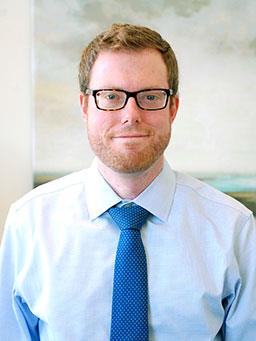A CU Medicine provider.
Our team values your psychological, emotional, and spiritual health. We are focused not only on survival, but on restoration of a meaningful and engaged life after cancer. We have experience guiding many patients and their families through treatment and recovery and want to provide the best comprehensive care to you and your family. Dr. Brewer’s clinical role involves providing evidence-based psychological intervention and assessment to patients with hematological disorders including allogeneic and autologous cell transplant recipients and their caregivers. Dr. Brewer’s area of focus includes reducing cancer related distress and improving quality of life for patients and caregivers through patient-centered psychological intervention. The psychosocial team can assist you with a variety of concerns such as symptoms of anxiety and depression, enhancing your coping skills as you adjust to the challenges of treatment, managing expectations, communication issues, family issues, coping with uncertainty, practical concerns such as how to sleep better at night, and ways to help you maintain motivation during the treatment process. If you are preparing to have a cell transplant, you and your caregiver will meet with one of the transplant psychologists prior to transplant for a standard pre-transplant appointment to discuss the psychosocial aspects of transplant (e.g., mood, coping, social support, family). Your psychologist, or psychosocial team member, will also “check in” during your transplant regarding any psychosocial concerns you or your family may have.
Dr. Benjamin Brewer is the Director of Clinical Psychology and Counseling for the department of hematology and is an Assistant Professor at the University of Colorado Denver Anschutz Medical Campus. Prior to joining the University of Colorado in December of 2010, Dr. Brewer completed a postdoctoral fellowship at the Colorado Blood Cancer Institute in Denver and a pre-doctoral internship at the University of Denver Health and Counseling Center. He received his doctorate in clinical psychology from the University of Denver. Dr. Brewer studied philosophy and psychology in college and received his bachelor’s degree from Connecticut College in New London, Connecticut. Dr. Brewer specializes in the field of health psychology and specifically in psycho-oncology, which focuses on the psychological and social aspects of cancer and its impact on patients and their families as well as the psychological, social and behavioral factors that impact cancer risk and survival.
Dr. Brewer is interested in social justice, philosophy and bioethics, culture, travel, skiing, paragliding, mountaineering and drumming.
Locations
Qualifications and experience
- Specialties
- Cancers, Mental Health and Behavior
- Gender
- Male
- Languages spoken
-
English
- Education
-
Undergraduate
Connecticut College (CT) (2001)
Graduate
University of Denver (2008)
- Research interest for patients
-
Dr. Brewer is currently Co-Investigator on a multi-site trial examining the effects of a psychotherapy intervention provided to the caregivers of allogeneic transplant patients. This trial looks at the impact on caregivers but also on patient medical variables that may be impacted by the intervention on caregivers. Dr. Brewer is also leading a project to collect pilot data about how patients sleep during hospitalization for autologous cell transplant. We know that it is often difficult to sleep well in the hospital and by collecting information about how patients sleep during hospitalization we hope to create future interventions to improve sleep. Dr. Brewer is also a member of a research group that is providing education and training to nursing staff related to how to recognize and help patients who may be demoralized related to their illness. Finally, Dr. Brewer is interested in studying the impact of psychosocial variables on transplant survival and outcomes, specifically the impact of sleep, caregiving support and emotional concerns.
- Insurance
- UCHealth strongly encourages you to consult with your health insurer to determine accurate information about your coverage and benefits for a particular health care service provided at a UCHealth facility. Read more here.

